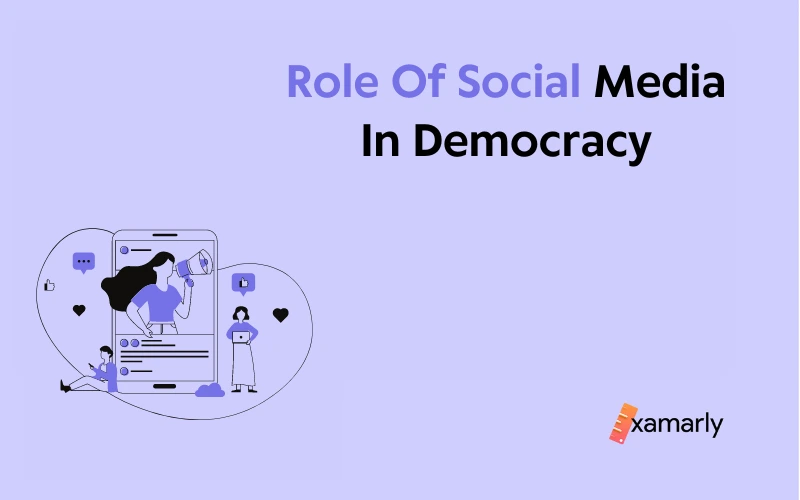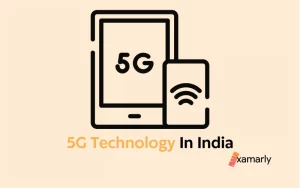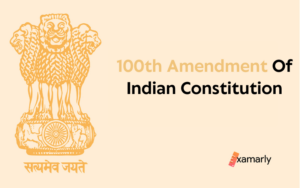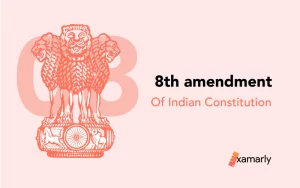Social media has revolutionized the way we communicate, connect and consume information. It has become an integral part of our daily lives and has also played a significant role in shaping democracy.
From facilitating political campaigns to holding elected officials accountable, social networking site has emerged as a powerful tool for civic engagement. But, as we’ve seen in recent years, it has also been used to spread misinformation and manipulate public opinion.
This has raised important questions about the role of social media in democracy and its potential to both empower and undermine citizens. As we navigate this ever-changing landscape, it is crucial that we understand the implications of social platforms on our democratic process.
So, if you’re interested in understanding how social websites are shaping our democracy and what they mean for our future, keep reading.
Is It Necessary To Regulate Social Networking Sites?
The pandemic caused by the COVID-19 virus highlighted the usefulness of social media as a supplement to the crisis response of modern governments and demonstrated how social networks may assist common folks.
The social platforms are facilitating citizens’ ability to hold leaders responsible, discuss concerns, and organize around causes all across the world.
However, because the social site is unregulated and plays a part in the dissemination of fake news, it promotes propaganda, targets minorities, and topples democratically elected governments, all of which weaken the democratic process.
Therefore, it is necessary to regulate social platforms in a way that balances freedom of speech, the interests of minorities, law, and order, and the promotion of citizen engagement in governance.
Role Of Social Media In Democracy
The role of social media in democracy has become increasingly important in recent years. Here are a few key ways in which social website is impacting the democratic process:
Positive Impact Of Social Sites On Democracy
India has the largest democracy in the globe and social sites play a vital role in democracy. Social sites’ positive impact on democracy is mentioned below:
- Digital democracy: The evolution of democratic values is possible when individuals have the ability to express themselves. Through these venues of openness, social media supports the idea of digital democracy.
- Setting Accountability: Social communication platform serves as a tool that can hold seemingly invincible governments responsible, question them, and bring about long-lasting change that is led by people rather than by a single vote every few years.
- Having a Voice: The power that social media platforms have to keep people informed is significant. This is evident from the fact that social networking site was hailed as a technology for liberty when they played a crucial part in the Arab Spring in places like Tunisia.
- Amplifying marginalized voices: Social sites provide a platform for marginalized groups to share their perspectives and mobilize for change.
- Civic Involvement: Since many individuals use social sites to discuss and debate news, social platforms have significant consequences for civic engagement.
- It has been noticed for a long time that when individuals talk about the news, they are more likely to get engaged in their community, whether it be by volunteering or getting in touch with political leaders.
Negative Impact Of Social Media On Democracy
Social media has revolutionized the way we communicate and share information, but it has also exposed some serious flaws in our democratic systems. The rise of social networking sites has brought about an unprecedented ability for individuals to connect and share information, but it has also exposed the fragility of truth and the ease with which misinformation can spread.
- Creating echo chambers and polarizing the public: Social media algorithms have the tendency to show us more of what we like and less of what we don’t, leading to the formation of echo chambers. This can make us more likely to encounter only one perspective, and less likely to be exposed to different viewpoints, which can polarize public opinion.
- As a result of the fact that an unprecedented number of individuals are channeling their political energy through this medium, it is being used in unexpected ways, which will have societal ramifications that were not anticipated.
- Setting for Propaganda: The Google Transparency Report indicates that, over the past some years, political parties have primarily spent roughly $800 million (about Rs. 5,900 crores) on election advertisements.
- Fraudulent campaigns may be able to propagate divisive ideas with little repercussion as micro-targeting.
- Foreign Interference: Russian corporations created and promoted bogus Facebook Pages around the 2016 US election, essentially utilizing social media channels as an information sidearm, to sway public opinion.
- The social website gives nation-states the ability to utilize these platforms to fight a virtual war aimed at dividing society.
- False Information: Social communication sites provide people a greater voice and are occasionally exploited by anyone to disseminate lies and false information.
- Unfair Participation: Social networking sites also skews how decision-makers view the public’s perspective. This is due to the misconception that social media sites tend to reflect people from all backgrounds, despite the fact that not everyone uses their voice in the same way.
In short, while social media has the potential to empower citizens and make democracy more inclusive, it has also exposed some serious flaws in our democratic systems. It is crucial for individuals, governments, and social network companies to take steps to combat misinformation, propaganda, and disinformation, and to ensure that the power of social networking sites is not used to enslave and harm democracy.
Increase The Relevancy Of Social Media
The increasing relevance of social communication outlets is due to a number of factors.
- Widespread access: The widespread availability of smartphones and internet access has made it easy for people to access and use social media platforms.
- Convenience: Social media platforms provide a convenient way for people to stay in touch with friends and family, share information, and access news and entertainment.
- Personalization: Social networking platforms use algorithms to tailor content to individual users, making it more engaging and relevant to them.
- Network effects: The more people who use a social media platform, the more valuable it becomes, leading to a self-reinforcing cycle of growth.
- Businesses and organizations: Social media has become a powerful tool for businesses and organizations to reach their customers, promote their products or services, and engage with their audience.
- Political campaigns: In recent years, political campaigns have increasingly turned to social media as a way to reach voters, mobilize supporters, and influence public opinion.
Overall, social platform has become an integral part of modern life, with their use and influence continuing to grow, and it has a huge impact on how we consume, shares and access information.
Challenges To Keep Social Media In Check
There are several challenges to keeping social media in check:
- Misinformation: One of the biggest challenges is the spread of misinformation on social platforms. False or misleading information can have a significant impact on public opinion and can undermine the democratic process. Social media companies have been criticized for not doing enough to combat misinformation, and for allowing it to spread unchecked on their platforms.
- Privacy: Another challenge is the issue of privacy on social media platforms. Many people are concerned about the amount of personal information that is collected and shared by social media companies, and about how this information is used and shared.
- Cyberbullying: Social media has also been linked to an increase in cyberbullying, which can have serious consequences for the mental and emotional well-being of young people.
- Addictive behavior: The use of social media can be addictive and can have a negative impact on mental health, especially when it comes to excessive use of these social sites.
- Polarization: Social networking platforms often create echo chambers, where people are only exposed to information that confirms their existing beliefs and are less likely to encounter dissenting opinions. This can lead to increased polarization and can make it harder for people to find common ground.
- Interference in politics: Social media corporations have come under fire for allowing external entities to use their platforms to promote misinformation, thereby meddling in politics and elections.
- Regulation: There is an ongoing debate about how to regulate social media companies, and what kind of oversight and accountability mechanisms are needed to ensure that they are operating in the public interest.
To keep social websites in check, it is important for social media companies to take more responsibility for the content on their platforms, to provide better tools for users to report and flag misinformation, and to work closely with government and civil society organizations to combat disinformation. Additionally, privacy laws and regulations must be put in place to ensure that social networking companies are transparent about how they collect and use personal data, and to give users more control over their data.
Winding Up
In conclusion, the role of social media in a democracy is a complex and multifaceted issue that has both positive and negative implications. On one hand, social handles have empowered citizens by giving them a platform to express their opinions, organize grassroots movements, and hold elected officials accountable.
On the other hand, it has also been used to spread misinformation, manipulate public opinion, and undermine democratic institutions. As we move forward, it is important that we continue to critically examine the impact of social networks on our democratic process and take steps to mitigate its negative effects.
This may include implementing stricter regulations on political advertising, promoting media literacy, and encouraging critical thinking. Ultimately, it is up to each and every one of us to use social media outlets responsibly and to ensure that it serves as a force for good in our democracy.
FAQs On The Role Of Social Media In Democracy
Why democracy needs social media?
Democracy needs social platforms because it allows for the free exchange of ideas and information among citizens, which is essential for informed decision-making. Social media platforms also provide a means for citizens to organize and mobilize for political action, and for elected officials to communicate with their constituents. Additionally, social sites can increase voter turnout and civic engagement by making it easier for people to stay informed about political issues and events. However, it is important to note that social channels can also be used to spread misinformation, so it is important to use it responsibly and to fact-check information before sharing it.
How does social media strengthen democracy?
Social media can strengthen democracy in several ways:
Access to information: Social sites provides a platform for citizens to access a diverse range of information and perspectives on political issues, which is crucial for informed decision-making in a democracy.
Political engagement or political participation: Social channel enables citizens to organize and mobilize for political action, which can increase civic engagement and voter turnout.
Transparency and accountability: Social media accounts allow elected officials to communicate with their constituents and for citizens to hold them accountable for their actions.
Representation: Social platforms also allows underrepresented groups to have a voice and to participate in the political process.
Connecting citizens: Social sites can also be used to connect citizens with each other, regardless of location, which can foster a sense of community and shared values.
It is important to note that while social media outlets can be beneficial for democracy, it can also be used to spread misinformation and manipulate public opinion. Therefore, it is important for social media users to use it responsibly and to fact-check information before sharing it.
Is social media corrupting the idea of democracy?
The social website can potentially corrupt the idea of democracy by spreading misinformation, enabling the manipulation of public opinion, and amplifying echo chambers. Some may use social media handles to spread false or misleading information, which can influence public opinion and ultimately undermine the democratic process. Social channel algorithms can also create echo chambers, where people are only exposed to information that confirms their existing beliefs and are less likely to encounter dissenting opinions. Additionally, the social communication channel can be used to target certain individuals or groups with disinformation, leading to an erosion of trust in democratic institutions. It is important to be aware of these potential negative effects of social media feeds and to use them responsibly, fact-checking information before sharing it and seeking out diverse perspectives.






